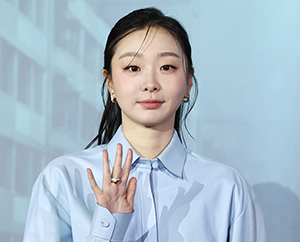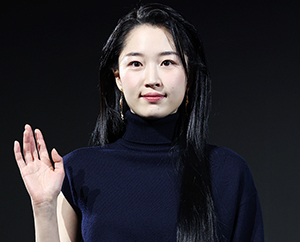자본주의는 인류 역사에서 가장 강력한 번영의 엔진이다. 인간이 만든 모든 것처럼 자본주의 역시 불완전하기는 하지만 자유시장은 가난을 해결하는 가장 효과적인 방법이다. 또한 자유시장은 희소한 자원을 배분하는 가장 윤리적인 방법이기도 하다.
 |
| 밀턴 R 울프 美 칼럼니스트 |
개인의 합리적인 이기심은 개인뿐 아니라 사회 전체에 봉사하게 된다. 왜냐하면 자유시장에서 지속적인 성공을 거두기 위해서, 즉 자신의 바람과 필요를 충족시키기 위해서는 먼저 다른 사람을 만족시켜야 하기 때문이다. 이것이 자본주의의 윤리적 기반을 이룬다.
자본주의를 비방하는 사람들은 자본주의가 탄생시킨 거인인 애플 창업자 스티브 잡스 같은 영웅을 생략하고 할리웃이 만든 가공의 인물인 고든 게코를 자본주의의 화신으로 간주한다. 영화 “월스트리트”의 주인공인 게코는 탐욕을 합리화한 것으로 유명하다. 그는 탐욕이 옳고 좋은 것이며 효과를 발휘한다고 주장했다.
그러나 탐욕은 좋은 것도 아니고 옳은 것도 아니다. 가장 확실한 것은 탐욕이 효과를 발휘하지 못한다는 점이다. 적어도 장기적으로 볼 때 그렇다. 탐욕은 자본주의가 아니고 비합리적인 이기심이다. 탐욕은 다른 사람을 희생시키면서 자신의 이익을 도모하는 데 비해 합리적 이기심은 남에게 먼저 봉사한다. 자신의 이익은 나중에 돌아오는 결과다.
탐욕은 일시적 성공을 거둘 뿐이다. 고든 게코가 그것을 우리에게 일깨워 준다. 투자 전문가 버니 메이도프와 엔론의 켄 레이처럼 탐욕 때문에 범법행위를 일삼는 사람들 역시 탐욕의 말로를 상기시킨다.
자유시장에서 영속적인 성공을 거두는 데는 타인에 대한 봉사가 필요하다. 그러나 혼동을 해서는 안 될 것이 있다. 즉 잡스가 아무런 이기적인 이유 없이 아이폰과 아이포드를 사람들에게 공급한 것은 아니다. 적어도 부분적으로는 풍부한 보상이 동기로 작용했다.
그는 희생자들을 농락해서 억만장자가 된 것이 아니다. 그는 수억 명 사람들의 생활을 향상시켰다. 그것이 열쇠다. 잡스 표 봉사는 자본주의의 예외가 아니라 규칙이다.
역사적으로 미국의 가장 부유한 사람들이 우리의 생활을 측량할 수 없을 정도로 향상시킨 사례를 보자. 빌 게이츠는 PC를 개발하여 우리가 더 큰 능력을 발휘하도록 만들었다. 샘 월튼은 과거 부유층만 소비했던 고급제품을 일반인들에게 공급하는 길을 열었다. 이와 더불어 그들은 수많은 일자리를 만들었고 수백만의 사람들이 재산을 모을 수 있는 힘을 주었다. 이런 부자들은 정부의 구제금융이나 보조금 혹은 대출 보증을 받지 않고 그런 일을 해냈다. 공공분야의 일자리를 마련하기 위한 오바마의 경기부양 정책의 도움도 받지 않았다.
이런 자유시장의 여러 원칙이, 보잘것없는 식민지였던 미국을 번영하는 강대국으로 발전시켰다. 지난 세기에 중국의 공산주의 정권조차도 자유시장 원칙을 부분적으로 도입하여 수억 명의 사람을 가난에서 구제하여 세계 역사상 유례가 없는 빈곤퇴치에 성공했다.
또한 다음 사실도 기억할 필요가 있다. 개인이 능력을 발휘하고 자신만의 세계를 구축하도록 돕는 것이 잡스의 꿈이었다. 그가 만든 아이폰은 세계에서 수억 대가 팔렸지만 2개가 동일한 사례는 없다. 아이폰의 세상에서는 개인이 주인이다. 경이적인 디지털 기술 덕분에 사람들은 주류 언론매체의 정보에만 매달릴 필요가 없게 되었다. 라디오 방송을 청취하지 않아도 원하는 음악을 얼마든지 들을 수 있게 되었다.
잡스는 이처럼 개인이 능력을 발휘하여 자기 운명을 스스로 개척하도록 도왔으나 자유의 땅인 미국에서는 정부가 상명하복식의 일률적인 복종을 시민들에게 요구하고 있다. 이는 참으로 비극적인 역설이다.
밀턴 R 울프 美 칼럼니스트
워싱턴 타임스·정리=오성환 외신전문위원
Steve Jobs, billionaire capitalist
By Dr. Milton R. Wolf
Capitalism is the most powerful engine for prosperity in the history of humankind. Though imperfect, as are all human constructs, the free market is still the most effective antidote to poverty and, what's more, it's the most moral method for allocating scarce resources. As we were reminded by the late Steve Jobs, co-founder of Apple, titan of industry and unapologetic capitalist, it's pretty darn cool, too.
The free market is really nothing more than free people - consenting adults - who, unleashed from coercion, are allowed to voluntarily exchange their ideas, efforts and property when it benefits them to do so, assuming it harms no one else in the process. Each person's rational self-interest ultimately serves not just the individual, but society as a whole because to achieve sustainable success in the free market - in other words, to satisfy your own wants and needs - you must first satisfy someone else's. This forms the moral basis of capitalism, and Jobs did this amazingly well.
Detractors (and misguided proponents) of capitalism skip over real heroes like Jobs and resort to a decades-old fictitious Hollywood character as their personification of capitalism: Gordon Gekko from the 1987 movie "Wall Street." Clad with preppy suspenders and a $6,000, 12-pound brick of a cellphone - available only to the richest few despite its notable absence of email, music playlists and Angry Birds - Gekko is most famous for his greed-is-good speech. "Greed - for lack of a better word," Gekko rationalized, "is good. Greed is right. Greed works."
No. Greed is not good. Greed is not right. And greed most certainly does not work, at least not for long. Greed is not capitalism; it is irrational selfishness. Greed seeks to serve oneself at the expense of others, whereas rational self-interest, the basis of capitalism, seeks to serve others first in order to serve oneself only later as a consequence. Greed, at best, succeeds only temporarily, as we're reminded by Gordon Gekko himself or other all-too-real perpetrators of greed like investor Bernie Madoff or Enron's Ken Lay.
Lasting success in the free market requires service to others, but don't be confused. Jobs did not provide us with his amazing iPhones, iPads and iPods for purely selfless reasons. In fact, it would be outright selfish of us to have expected him to do so. Instead, he was motivated, at least in part, by rich rewards. He became a billionaire not by fooling victims, but instead by making hundreds of millions of lives better. That's the key.
Jobs' brand of serving others is the rule of capitalism, not the exception. Look at how the wealthiest Americans throughout history each made our lives immeasurably better: Bill Gates unlocked the personal computer and empowered us all. Sam Walton provided affordable consumer goods that previously were available only to the better off. Along the way, those men created hundreds of thousands of jobs and empowered millions more to create their own wealth. What's more, they did so without federal bailouts, subsidies, loan guarantees or even President Obama's shovel-ready stimulus slush fund.
Rational self-interest is nothing new, of course. Adam Smith (the father of capitalism) described it more than two centuries ago: "It is not from the benevolence of the butcher, the brewer, or the baker, that we expect our dinner, but from their regard to their own self-interest. We address ourselves, not to their humanity but to their self-love, and never talk to them of our own necessities but of their advantages."
These free-market principles unleashed America's meteoric rise from a small band of Colonies to the most prosperous and powerful nation ever. In the last century, even the unlikely communist regime in China began adopting some free-market principles and lifted hundreds of millions of poor souls out of poverty, the most ever in world history.
History continues to be made. Jobs' amazing smartphones, personal music players and individualized computers were themselves never his goal but were merely the means to his greater vision of personal empowerment: a world of information, connectivity and even entertainment right at your fingertips, and for good reason. "Steve was very fast thinking and wanted to do things; I wanted to build things," explained an early partner.
Jobs' dream was to empower you to personalize or even create your own world. Consider this: A hundred million iPhones have been sold worldwide so far and, like snowflakes, no two are alike. Individuality rules. With his digital marvels, you are no longer limited only to the mainstream information that some newscaster feels you need. You don't even have to accept the song choices of some radio station. Meanwhile, the tragic irony is that while Jobs empowered individuality and dared each of us to be the captains of our own destinies, America, land of the free, is beset with a government that demands our submission to its top-down, one-size-fits-all rules from banking to health care and everything in between.
Apple exploded onto the national scene in the fateful year of 1984 with the iconic Superbowl halftime commercial featuring a young, rebellious woman demolishing the dystopia created by Big Brother, the personification of an overbearing government in George Orwell's novel. It may as well have been Jobs himself who hurled that hammer into the video screen and freed us all. Apple co-founder Steve Wozniak later spoke of another dystopian novel, this one by Ayn Rand that, like Orwell's, warned that powerful governments smother individual freedom. Wozniak said of his friend: "I think 'Atlas Shrugged' was one of his guides in life."
Godspeed, Steve Jobs, modern face of individuality, of capitalism. You made our world immeasurably better by reminding us that free minds and free markets are effective, moral and downright cool. iThank you.
Copyright ⓒ 세계일보. 무단 전재 및 재배포 금지
![[설왕설래] 연명 의료 중단 인센티브](http://img.segye.com/content/image/2025/12/17/128/20251217518575.jpg
)
![[세계타워] 같은 천막인데 결과는 달랐다](http://img.segye.com/content/image/2025/12/17/128/20251217518533.jpg
)
![[세계포럼] 우리가 알던 미국이 아니라고?](http://img.segye.com/content/image/2025/09/10/128/20250910520139.jpg
)
![[열린마당] 새해 K바이오 도약을 기대하며](http://img.segye.com/content/image/2025/12/17/128/20251217518355.jpg
)








